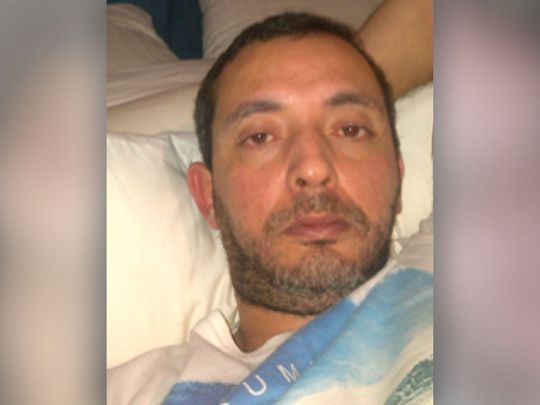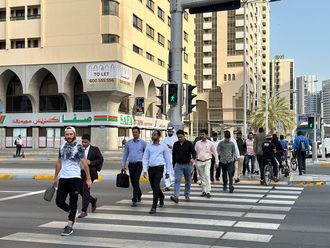
Dubai: The ringleader of the ‘Angels of Death’ gang was extradited back to the Netherlands from the UAE on Thursday after being arrested in a Dubai villa earlier this week.
The arrest of Ridouan Taghi — described as “the Netherland’s most dangerous man” — was announced on Monday, with Dutch police praising their Dubai counterparts for their cooperation.
Taghi, 41, had been on the run for years and now faces trial for drug trafficking and the alleged ordering of a string of assassinations in his native Holland.
“For security reasons, he was flown to the Netherlands by chartered plane with a police escort,” Dutch prosecutors told Associated Press.
The trial of Taghi and his alleged partner, Said Razzouki - who remains on the run - had already begun with the pair in absentia, but now it will continue on February 27, with Taghi present.
He has been transferred to a prison in Vught, according to a local media report in the Netherlands.
Taghi had entered Dubai using a different identity, under a passport and visa issued before the time of an Interpol arrest warrant.
Brigadier Jamal Al Jallaf, director of the Criminal Investigation Department at Dubai Police, said that Taghi didn’t resist the arrest and surrendered to the special squad team that raided the villa.
“He said that he didn’t expect to be caught after all these years of hiding away. There was an Asian woman with him when we raided the villa. We believe that she is his friend,” added Al Jallaf.
Dubai Police said that Taghi entered the country in 2016 and was hiding in a villa without making any trasnactions in his own name thanks to the help of friends and assistants, who provided for his needs with logistic support.
“The curtains in the villa were always closed and there was no light coming out from the villa, it was as if nobody was living there. Taghi was acting carefully all the time,” said Al Jallaf.
“He has a smart mind as he didn’t make any purchases or transactions under his name since he arrived in Dubai. He left no trace, which was a big challenge for us, but we arrested him in the end,” added Jallaf, who credited surveillance and data analysis with helping them track down the fugitive.
Most wanted
Dutch police were offering a reward of €100,000 (Dh402,294) for information relating to Taghi’s whereabouts, the highest in their history, but he had kept a low profile and remained largely unheard of until the mid-2000s when he started trafficking cocaine into Europe from South America via Morocco.
Investigators claim he is wanted in connection with at least 20 murders, ordered by him and his associate Said Razzouki.
Police in Holland who monitored chats between the two suspects said these hits were ordered as casually as if they were ‘cups of coffee’.
The most audacious of their hits was the murder of prosecution lawyer Derk Wiersum, 44, in Amsterdam in September, who was gunned down in front of his wife. He was the lawyer of Nabil B, a former member of Taghi’s gang, who had turned informer and was expected to testify against Taghi and Razzouki.
The murder of Wiersum came a year after the assasination of Nabil’s brother, who had nothing to do with the gang.
Wiersum’s broad daylight murder sparked outrage in the country and forced police to step up their investigation, assigning nearly 100 digital and financial expert officers onto the case.
Before long Taghi was placed on Europe’s ‘most wanted’ list.
His name first cropped up in a police report in 2015 when Dutch authorities cracked down on a death squad which committed murders ordered by mob bosses.
However, Taghi was not charged because of lack of evidence. The first real proof of his involvement came the following year when authorities decoded several text messages he exchanged with his criminal enterprise.
“Serves that [expletive] right. Giving up information on our group,” Taghi messaged one of his underlings after the 2016 killing of a man.
In 2013, he allegedly had his brother-in-law killed in Spain in following a disagreement over a drug shipment.
“He who talks, goes. And everyone around him goes to sleep,” an informant would later tell investigators.
That said, all hits didn’t go as planned. On two occasions in 2017, his death squad killed the wrong man. One of them turned out to be the son of a judge. In 2018, the Public Prosecution Service put Taghi and his right-hand man Said Razzouki on an international investigations list.
Taghi remained elusive, changing his looks every few months and using false passports and visas until Dubai police caught him, ending years on the run.











